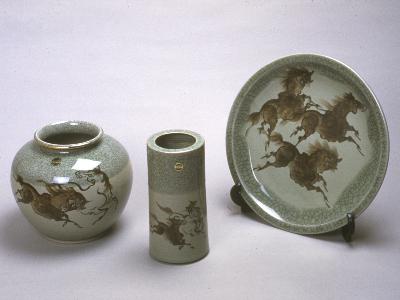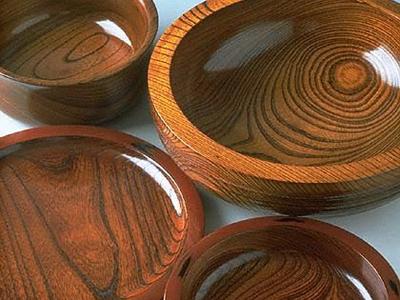|
Obori-soma ware is the local pottery of Obori, Namie Town, Fukushima Prefecture. In 1690, Sama, a servant of Hangai Kyukan, an Aima domain samurai, established this pottery.
The Soma domain encouraged pottery-making, so, by the end of the Edo period, there were about 100 kilns for the area.
Since the Meiji period, however, the number of kilns has decreased and now only 24 kilns are making pottery that follows this 300-year tradition. Obori-soma ware is pottery that has been loved by commoners since the end of the Edo period.
The ware mainly produced is 'blue crack', which features a cracked celadon-blue glaze. The vessels are double-layered to keep tea inside hot; the running-horse motif is painted by hand.
In 1978, Obori-soma ware was designated as a National Traditional Handicraft.
The Soma domain encouraged pottery-making, so, by the end of the Edo period, there were about 100 kilns for the area.
Since the Meiji period, however, the number of kilns has decreased and now only 24 kilns are making pottery that follows this 300-year tradition. Obori-soma ware is pottery that has been loved by commoners since the end of the Edo period.
The ware mainly produced is 'blue crack', which features a cracked celadon-blue glaze. The vessels are double-layered to keep tea inside hot; the running-horse motif is painted by hand.
In 1978, Obori-soma ware was designated as a National Traditional Handicraft.
| [+ADDRESS] | 
|














